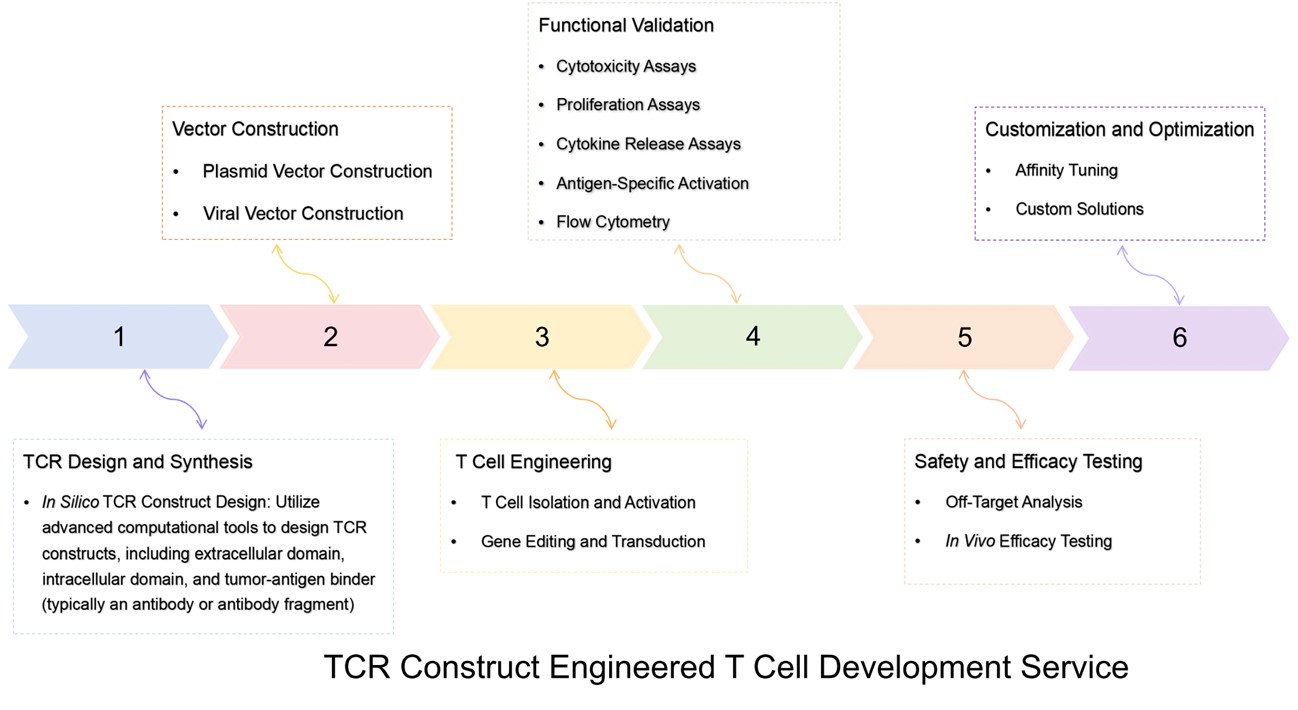The TCR complex is composed of several subunits, including the TCR alpha (α) and TCR beta (β) chains, as well as the CD3 complex, which consists of CD3 epsilon (ε), CD3 gamma (γ), CD3 delta (δ), and CD3 zeta (ζ) subunits. These components work synergistically to ensure T cells can accurately recognize antigens and initiate appropriate immune responses, playing a vital role in maintaining immune surveillance and responding to pathogens and abnormal cells.
Here's a detailed overview of these subunits and their functions:
| TCR Subunit | Structure | Function | Key Features |
| TCR Alpha (α) | Variable (V) and Constant (C) regions | Recognizes peptide-MHC complexes | Generated through V(D)J recombination for antigen diversity |
| TCR Beta (β) | Variable (V) and Constant (C) regions | Recognizes peptide-MHC complexes | Generated through V(D)J recombination for antigen diversity |
| CD3 Epsilon (ε) | Single-pass transmembrane protein | TCR assembly, expression, and signal transduction | Contains ITAMs for phosphorylation and signal transduction |
| CD3 Gamma (γ) | Single-pass transmembrane protein | Stabilizes TCR complex, signal transduction | Contains ITAMs for phosphorylation and signal transduction |
| CD3 Delta (δ) | Single-pass transmembrane protein | TCR assembly and expression, signal transduction | Contains ITAMs for phosphorylation and signal transduction |
| CD3 Zeta (ζ) | Homodimer, long cytoplasmic tail | Major role in signal transduction | Multiple ITAMs for initiating intracellular signaling cascades |
Creative Biolabs offers sophisticated TCR construct engineered T cell development services, focusing on the design, and construction. Our TCR constructs include TCR subunits and tumor-antigen binders. This service is ideal for developing highly targeted T cell therapies for cancer, infectious diseases, and other challenging conditions, ensuring precise and effective immune responses.

Q1: What is TCR Construct Engineering?
A1: TCR construct engineering involves the fusion of TCR components with tumor-antigen binders (such as antibodies), enhancing T cell specificity and activity against cancer cells.
Q2: How does TCR construct engineering enhance cancer treatment?
A2: By combining TCRs with tumor-antigen binders, this technology improves T cell recognition of specific tumor antigens, potentially reducing off-target effects on healthy tissues.
Q3: What are the benefits of affinity tuning in tCRconstruct engineering?
A3: Affinity tuning optimizes the binding strength between TCRs and tumor antigens, enhancing T cell activation and targeting of cancer cells while minimizing immune responses against normal tissues.
Our innovative approach combines cutting-edge technology with personalized strategies, enhancing T cell specificity and efficacy against cancer cells. If you are seeking advanced solutions to targeted T cell therapies, contact us to explore how our expertise can tailor TCR constructs to meet your unique needs.
For any technical issues or product/service related questions, please leave your information below. Our team will contact you soon.
All products and services are For Research Use Only and CANNOT be used in the treatment or diagnosis of disease.
 NEWSLETTER
NEWSLETTER
The latest newsletter to introduce the latest breaking information, our site updates, field and other scientific news, important events, and insights from industry leaders
LEARN MORE NEWSLETTER NEW SOLUTION
NEW SOLUTION
CellRapeutics™ In Vivo Cell Engineering: One-stop in vivo T/B/NK cell and macrophage engineering services covering vectors construction to function verification.
LEARN MORE SOLUTION NOVEL TECHNOLOGY
NOVEL TECHNOLOGY
Silence™ CAR-T Cell: A novel platform to enhance CAR-T cell immunotherapy by combining RNAi technology to suppress genes that may impede CAR functionality.
LEARN MORE NOVEL TECHNOLOGY NEW SOLUTION
NEW SOLUTION
Canine CAR-T Therapy Development: From early target discovery, CAR design and construction, cell culture, and transfection, to in vitro and in vivo function validation.
LEARN MORE SOLUTION

